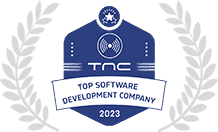In today’s fast-paced business environment, organizations seek innovative solutions to streamline operations and improve efficiency. Enter NetSuite, a comprehensive cloud-based Enterprise Resource Planning (ERP) system that integrates various business functions. With the advent of artificial intelligence (AI) and automation technologies, NetSuite has evolved into a powerful tool that enhances business efficiency, enabling companies to make data-driven decisions, automate routine tasks, and optimize resources.
This article delves into the role of AI and automation in NetSuite, exploring its key features, benefits, and practical applications. By understanding how these technologies can transform business processes, organizations can leverage NetSuite to achieve their operational goals.
Understanding NetSuite: A Comprehensive Overview
NetSuite is a cloud-based ERP system designed to provide businesses with a unified platform for managing core operations. From financial management to customer relationship management (CRM), inventory control, and e-commerce, NetSuite offers a wide range of functionalities.
Key Features of NetSuite
- Financial Management: NetSuite’s financial management capabilities allow organizations to track revenue, manage expenses, and streamline financial reporting.
- Customer Relationship Management (CRM): NetSuite’s CRM module helps businesses manage customer interactions, track sales leads, and improve customer service.
- Supply Chain Management: With tools for inventory tracking, order management, and procurement, NetSuite optimizes the supply chain process.
- E-commerce Integration: Businesses can easily integrate their e-commerce platforms with NetSuite, providing a seamless shopping experience for customers.
- Human Resources Management: NetSuite includes features for managing employee records, payroll, and performance evaluations.
The Impact of AI on Business Operations
Artificial intelligence is revolutionizing the way businesses operate. By leveraging AI, organizations can analyze vast amounts of data, gain insights, and make informed decisions. In the context of NetSuite, AI enhances the functionality of the ERP system, leading to improved efficiency and productivity.
1. Data Analysis and Insights
AI algorithms can analyze large datasets in real-time, identifying patterns and trends that may not be immediately apparent to human analysts. This capability enables businesses to make data-driven decisions.
- Predictive Analytics: AI-powered predictive analytics can forecast sales trends, customer behavior, and market fluctuations, allowing businesses to plan accordingly.
- Anomaly Detection: AI can identify anomalies in financial transactions, helping organizations mitigate risks and prevent fraud.
2. Enhanced Decision-Making
With AI providing valuable insights, decision-makers can base their strategies on data rather than intuition.
- Automated Reporting: AI can automate the generation of reports, providing stakeholders with timely information for decision-making.
- Scenario Analysis: AI can simulate different business scenarios, allowing leaders to evaluate the potential impact of their decisions.
3. Streamlining Processes
AI can automate repetitive tasks, freeing up employees to focus on more strategic initiatives.
- Automated Data Entry: AI-powered data entry tools can extract information from documents and input it into NetSuite, reducing manual errors and saving time.
- Workflow Automation: AI can automate workflows, ensuring that tasks are completed efficiently and in a timely manner.
Automation in NetSuite: Transforming Business Processes
Automation is a core feature of NetSuite, enabling businesses to streamline operations and improve efficiency. By automating various tasks, organizations can reduce manual effort, minimize errors, and enhance productivity.
1. Automated Financial Processes
NetSuite automates several financial processes, including invoicing, expense management, and financial reporting.
- Invoicing Automation: Businesses can automate the creation and delivery of invoices, ensuring timely payments and improved cash flow.
- Expense Management: Automated expense tracking simplifies the process of capturing and categorizing expenses, making it easier for finance teams to manage budgets.
2. Inventory Management Automation
NetSuite’s inventory management features allow businesses to automate stock tracking, order fulfillment, and procurement processes.
- Real-Time Inventory Tracking: Automation ensures that inventory levels are updated in real-time, reducing the risk of stockouts and overstocking.
- Automated Reordering: Businesses can set reorder points, allowing NetSuite to automatically generate purchase orders when stock levels fall below a certain threshold.
3. Streamlined Customer Interactions
NetSuite’s CRM capabilities enable businesses to automate customer interactions, improving response times and enhancing customer satisfaction.
- Lead Management Automation: Organizations can automate lead tracking and nurturing, ensuring that potential customers receive timely follow-ups.
- Automated Customer Support: NetSuite can automate customer support workflows, directing inquiries to the appropriate team members and ensuring prompt responses.
The Benefits of AI and Automation in NetSuite
The integration of AI and automation within NetSuite offers numerous benefits for businesses looking to enhance efficiency and productivity.
1. Improved Accuracy and Reduced Errors
Automation minimizes the risk of human errors, ensuring that data entry and processing are accurate. This accuracy is crucial for maintaining reliable financial records and customer information.
- Consistent Data Management: Automated processes ensure that data is entered consistently, reducing discrepancies and improving data quality.
- Error Detection: AI can identify errors in data and processes, allowing businesses to address issues before they escalate.
2. Enhanced Productivity and Efficiency
By automating routine tasks, employees can focus on higher-value activities that contribute to business growth.
- Time Savings: Automation reduces the time spent on manual tasks, enabling employees to allocate their time to strategic initiatives.
- Increased Throughput: Automated processes can handle a higher volume of transactions, improving overall operational efficiency.
3. Cost Savings
AI and automation can lead to significant cost savings for businesses by reducing labor costs and minimizing operational inefficiencies.
- Lower Labor Costs: Automation reduces the need for manual labor in repetitive tasks, allowing organizations to operate with fewer employees.
- Reduced Operational Costs: Streamlined processes result in lower operational costs, enabling businesses to allocate resources more effectively.
Implementing AI and Automation in NetSuite
To fully harness the power of AI and automation in NetSuite, businesses must implement effective strategies and best practices.
1. Assessing Business Needs
Before implementing AI and automation solutions, organizations should assess their specific business needs and identify areas where automation can add value.
- Process Mapping: Conducting a thorough analysis of existing processes can help identify bottlenecks and inefficiencies.
- Goal Setting: Establish clear objectives for what the organization hopes to achieve through AI and automation.
2. Choosing the Right Tools
Selecting the right AI and automation tools is crucial for successful implementation within NetSuite.
- Integration Capabilities: Ensure that any tools chosen can integrate seamlessly with NetSuite to avoid data silos.
- User-Friendliness: Look for tools that are easy to use and require minimal training for employees.
3. Training and Support
Providing training and support for employees is essential for maximizing the benefits of AI and automation.
- Employee Training: Ensure that employees are well-trained in using new tools and processes, fostering a culture of innovation.
- Ongoing Support: Establish a support system for employees to address any questions or challenges they may encounter.
Future Trends in AI and Automation for NetSuite
As technology continues to evolve, the role of AI and automation in NetSuite will likely expand, offering even more opportunities for businesses.
1. Advanced AI Capabilities
The future of AI in NetSuite may include more advanced capabilities, such as natural language processing (NLP) and machine learning (ML).
- Natural Language Processing: NLP can enhance user interactions with NetSuite by allowing users to query data using conversational language.
- Machine Learning: Machine learning algorithms can continuously improve decision-making processes by analyzing historical data and identifying trends.
2. Greater Customization and Personalization
AI-driven personalization will enable businesses to tailor their NetSuite experience to meet specific needs.
- Custom Dashboards: Businesses may be able to create customized dashboards that display relevant metrics and insights based on user roles.
- Personalized Recommendations: AI can provide personalized product and service recommendations based on customer behavior and preferences.
Conclusion
The integration of AI and automation in NetSuite represents a significant opportunity for businesses to enhance efficiency and streamline operations. By leveraging these technologies, organizations can improve data accuracy, boost productivity, and reduce costs. As the landscape of business technology continues to evolve, embracing AI and automation will be essential for companies seeking to maintain a competitive edge.
20 Unique FAQs About AI and Automation in NetSuite
- What is NetSuite?
NetSuite is a cloud-based ERP system that integrates various business functions, including financial management, CRM, and inventory control. - How does AI enhance NetSuite’s functionality?
AI enhances NetSuite by providing data analysis, predictive insights, and automation of routine tasks. - What are the benefits of automating financial processes in NetSuite?
Automation improves accuracy, reduces manual effort, and enhances financial reporting capabilities. - Can businesses automate customer interactions using NetSuite?
Yes, NetSuite allows for the automation of customer support and lead management processes. - What role does predictive analytics play in NetSuite?
Predictive analytics helps organizations forecast trends and make informed decisions based on historical data. - How can AI help detect anomalies in financial transactions?
AI algorithms can analyze transaction data to identify irregular patterns that may indicate fraud or errors. - What types of automation are available in NetSuite?
Automation options include invoicing, expense management, inventory tracking, and customer support workflows. - How does automation improve inventory management in NetSuite?
Automation ensures real-time tracking of inventory levels and automates reordering processes to prevent stockouts. - What training is necessary for employees to use AI and automation in NetSuite?
Employees should receive training on new tools, processes, and best practices for leveraging AI and automation effectively. - What are the cost savings associated with implementing automation in NetSuite?
Automation can reduce labor costs and operational inefficiencies, leading to significant cost savings over time. - Can businesses customize their NetSuite experience with AI?
Yes, AI-driven personalization will allow businesses to tailor dashboards and recommendations based on user needs. - What is machine learning, and how does it relate to NetSuite?
Machine learning is a subset of AI that improves decision-making by analyzing historical data; it can enhance NetSuite’s functionality. - How does NetSuite integrate with other business tools?
NetSuite offers APIs and integration options that allow businesses to connect with third-party applications seamlessly. - What are some best practices for implementing AI and automation in NetSuite?
Best practices include assessing business needs, choosing the right tools, and providing ongoing training and support. - Is NetSuite suitable for small businesses?
Yes, NetSuite can benefit small to large businesses, offering scalability and flexibility to meet varying operational needs. - How does AI contribute to decision-making in NetSuite?
AI provides real-time insights and automated reporting, enabling leaders to make informed decisions quickly. - What are the security measures in place for AI and automation in NetSuite?
NetSuite employs robust security protocols to protect data, ensuring compliance with industry standards and regulations. - Can businesses track the performance of AI and automation initiatives in NetSuite?
Yes, businesses can monitor key performance indicators (KPIs) to evaluate the success of AI and automation implementations. - What are the challenges of integrating AI into NetSuite?
Challenges may include the initial investment, employee training, and ensuring data quality for accurate analysis. - What is the future of AI and automation in NetSuite?
The future will likely see enhanced AI capabilities, greater customization, and more seamless integrations with emerging technologies.
By harnessing the power of AI and automation in NetSuite, businesses can enhance operational efficiency, streamline processes, and drive growth. The integration of these technologies represents a strategic advantage for organizations seeking to thrive in a competitive landscape.
- Natural Language Processing (NLP): How AI Understands Human Language - October 4, 2024
- AI in Autonomous Vehicles: Driving the Future of Transportation - October 4, 2024
- The Role of AI and Automation in NetSuite: Enhancing Business Efficiency - October 4, 2024




















